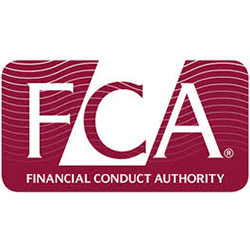Compliance
UK Watchdog Growls At Robo-Advisors; Demands Higher Standards

The Financial Conduct Authority has reported on the state of the UK robo-advisor industry and finds fault on a number of levels, prompting mixed reactions.
Robo-wealth management firms suffer from failings such as not
showing that investments suit their clients and aren’t clear
enough about fees, the UK's financial regulator has said.
While robo-advisors have seized media and industry attention with
their promise of automating parts of the wealth management
process – raising the spectre of pushing humans out of a job –
the industry is still nascent.
The Financial
Conduct Authority issued a report on the sector after
examining 10 automated online discretionary investment management
(ODIMs) in two stages, with seven in its first review, and three
in the second. The watchdog didn’t name the firms it examined,
however.
“The service and fee-related disclosures at most ODIM firms in
our sample were unclear. Some firms did not make clear whether
their service was advised, non-advised, discretionary or
non-discretionary,” the regulator said. “Some firms also compared
their fee levels against peer services in a potentially
misleading way. For example, they compared a non-advised,
non-discretionary service with a discretionary service solely on
a cost basis without explaining the difference in the nature of
the service."
And the FCA’s finding on suitability was also unflattering.
“Many firms offering ODIM services did not properly evaluate a
client’s knowledge and experience, investment objectives and
capacity for loss in their suitability assessments. Some firms
did not ask clients about their knowledge and experience at all,
as they felt their service was suitable for all individuals
regardless of their investment knowledge and experience,” it
said.
Digitally-driven wealth management platforms, which adjust asset
allocation and tweak investments based on data fed in by clients,
have risen rapidly in recent years. Initially, when the retail
and mass affluent market for financial advice was squeezed by the
UK’s Retail Distribution Review reforms that took effect from
2013, such “robo” solutions were seen as a way to plug an
emergent “advice gap”. Robos fall into “pure” and “hybrid”
models, with some eliminating human contact while others retain
only some measure of personal contact. In the UK, firms falling
into the space include Wealthify, Nutmeg, Scalable Capital,
Wealth Horizon, True Potential, and Moola.
The FCA’s observations are one of a number of criticisms about
the wider investment sector. Last year, for example, it found
that, overall, the UK’s fund management sector lacked
transparency, value for money and competitiveness.
Views about robos suggest investors accept these models, albeit
with reservations. In December last year, a survey of high
net worth investors in the UK, US, France, Germany and
Switzerland found they were “very open” towards robo-advisors and
willing to allocate a significant share of their assets to them.
Data presented in the report by MyPrivateBanking, the
Swiss research house, showed that nearly two-thirds (63 per
cent) of wealthy individuals would invest more than a quarter of
their assets with a robo-advisor.
Other grumbles
The FCA's report noted that while firms offer streamlined advice
models to make personal recommendations, some providers lacked
adequate fact-finding and “know-your-client” focus, instead
relying on assumptions about clients.
“In general, we were not satisfied with the strength of
information gathering about clients' financial circumstances. For
example, some services failed to request or gather adequate
information about customers’ debt and other outgoings. Firms
should consider how to improve the amount and quality of client
information collected during the auto advice process,” the FCA
continued.
“We expect automated investment services to meet the same
regulatory standards as traditional discretionary or advisory
services. This means taking a proportionate approach to
information gathering while maintaining the appropriate level of
client protection,” it said.
Nutmeg, one of the most
prominent of the UK “robos”, commented on the FCA’s report.
“We share the FCA’s desire to ensure all customers are getting a
fair deal and an investment strategy which is suitable for their
individual situation and needs. As the online wealth management
industry grows, with many new entrants entering the market, we
welcome tighter regulation and scrutiny to ensure that all firms
are following best practice and delivering services that are in
the interest of customers,” Martin Stead, chief executive,
said.
"Nutmeg was founded with a mission to empower generations of
investors by using technology to make high-quality wealth
management available to more people, with a jargon-free and
better value service. Our head of financial advice plays a vital
role in the design of our risk assessment, financial planning
tools, ongoing suitability and monitoring of client outcomes to
ensure customers have investments that are right for them,” Stead
continued.
Bionic, not robotic
One independent financial advisor group said the FCA’s report
suggested that a shift to entirely automated approaches wasn’t
viable.
“Robo-advice with no human intervention is unlikely to be
suitable for those who need to make strategic financial decisions
– how best, for example, to prioritise competing demands on their
time and money. At the same time, we must recognise that
face-to-face is today beyond the financial reaches of many
individuals,” LEBC director of public policy, Kay Ingram,
said.
“We believe the balance lies in bionic advice, which combines
technological efficiencies with human empathy. Through
bionic advice we are making quality advice accessible to greater
numbers of people at a more affordable cost, retaining at the
same time the important sense checking which only emotional
intelligence can provide,” she said.